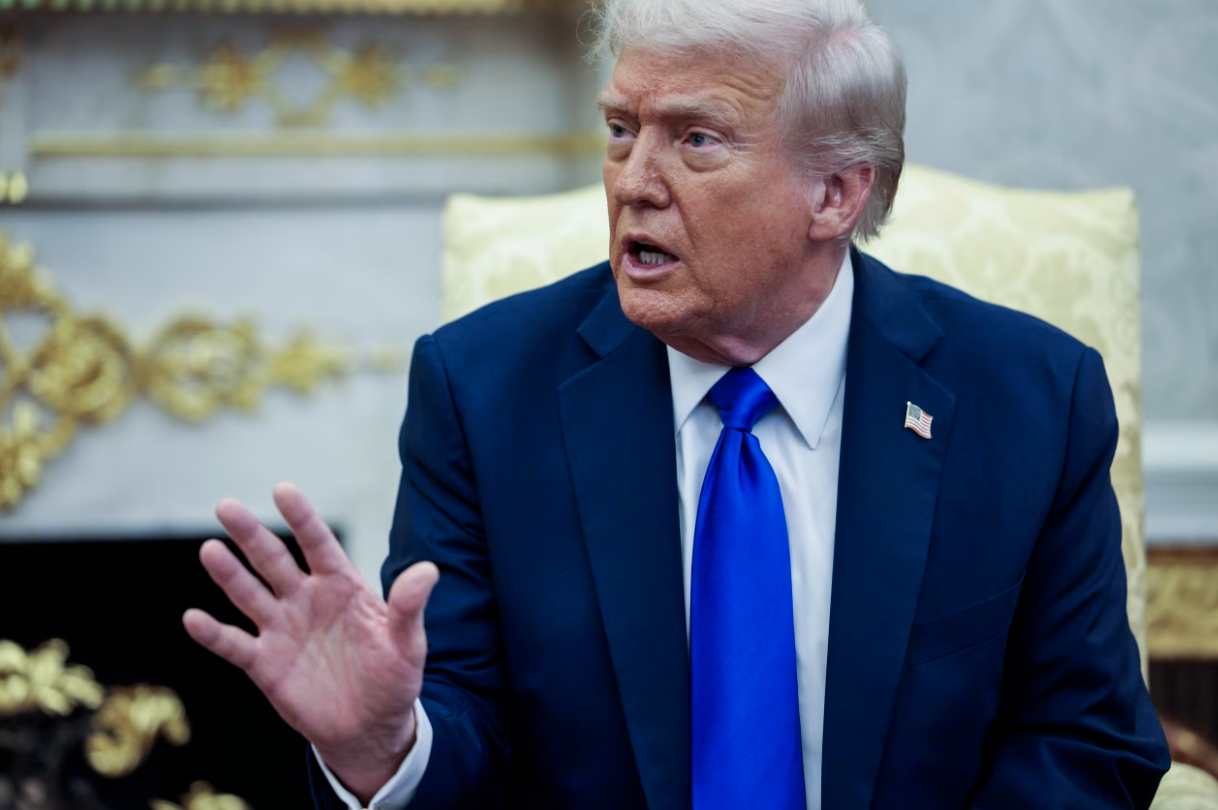
There’s so much happening, it’s overwhelming—for news junkies watching events unfold and for the White House trying to manage it all.
The federal government is shut down over stupid demands. While President Trump claims he has “a negotiation going on” to reopen it, that contradicts flat denials from White House press secretary Karoline Leavitt and Senate Minority Leader Chuck Schumer that there are talks.
Mr. Trump is in the middle of a showdown with state and local officials in Oregon and Illinois over sending National Guard troops into Portland and Chicago to crush what he calls the “enemy within.”
The Supreme Court will soon hear challenges to Mr. Trump’s use of emergency powers to levy tariffs on a wide range of goods and trading partners.
Americans are souring on the economy: Only 26% in a Sept. 28 Pew poll said it is “excellent or good.” This led Mr. Trump to change his messaging from the “best economy we’ve ever had” to it will be better next year.
The president’s retribution drive is heating up. On Truth Social he demanded Attorney General Pam Bondi not “delay” indicting former FBI Director James Comey or going after New York Attorney General Letitia James and Sen. Adam Schiff (D., Calif.).
Mr. Trump is still cracking down on U.S. universities, which he says are “infested with radicalism.” He has demanded limits on foreign student enrollment as well as changes in admission, student loan and free-speech policies.
The changes wrought by Health and Human Services Secretary Robert F. Kennedy Jr. are sparking outrage from healthcare professionals and researchers.
Conspiracy buffs demand the administration release all Jeffrey Epstein documents. There are questions about a presidential pardon for Ghislaine Maxwell.
The war between Russia and Ukraine continues, with the body count rising. In Cairo, negotiators are working to end the Gaza war and bring regional stability. America faces dangerous challenges from China, Iran and North Korea, all with huge ramifications for our future.
Some of these issues the administration brought on itself; some were forced on it. Regardless, it’s a lot of big action items for any White House to manage simultaneously.
Team Trump has too many plates spinning. It will reach a breaking point if the administration doesn’t do something.
Putting down a few dishes would help. The administration must distinguish what’s urgent. Reduce the priority of issues that won’t markedly improve the president’s standing with the public. The important ones will materially affect peace and prosperity. Focus relentlessly on them. And when you get a win—like securing the southern border—celebrate it. Explain the benefits. Your opponents surely won’t.
Accept that no White House gets its way on everything. It’s better to end controversies not essential to Mr. Trump’s ultimate success. Look for opportunities for mutually beneficial solutions. Consider Treasury Secretary Scott Bessent’s example of turning tariff threats into trade deals.
Consider setbacks on less central issues as welcome moments to reduce the workload, especially if the reversals come from Supreme Court decisions. They will provide convenient off-ramps, and failure to respect the courts will greatly diminish public support. And all the trash talk is too much. Even some in the base aren’t impressed by that.
Remember, too, that events intrude on every administration’s to-do list. Save time, energy and political capital to deal with the unexpected, because more is coming.
In our polarized environment, a flood of controversies like the one currently roiling the White House will most likely rev up each side’s partisans. The losing side on any issue will default to more-extreme language and actions.